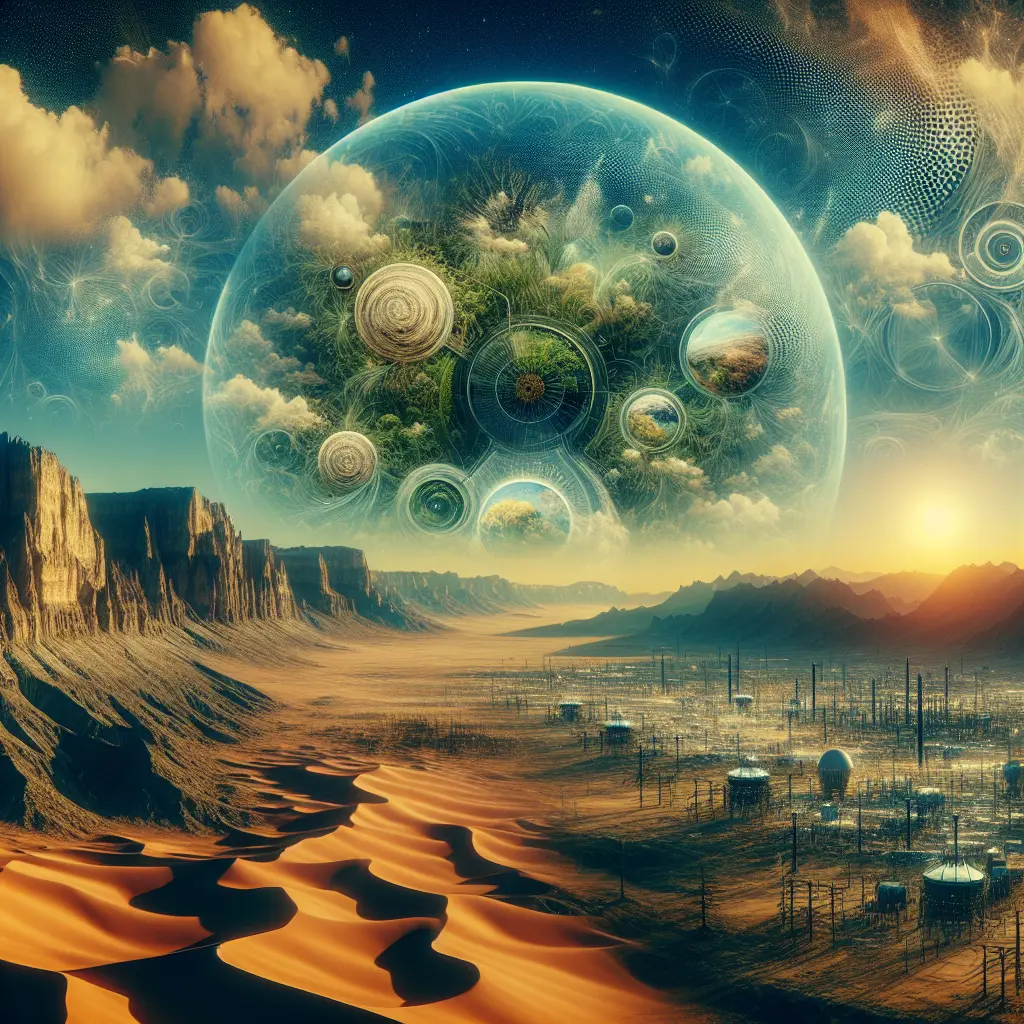
Frank Herbert's Dune is often celebrated for its intricate plot and deep mythos, but beneath its surface, the saga offers a profound exploration of ecological themes that resonate now more than ever. As we anticipate the release of "Dune: Prophecy" on HBO this November, it's the perfect time to delve into how Dune uses its desert landscapes not only as a backdrop but as a central character pivotal to its narrative and themes.
Dune’s Ecological Underpinnings
At the heart of Dune's narrative is the desert planet of Arrakis. It is here that Frank Herbert unfolds a complex story woven with environmentalism, sustainability, and the consequences of ecological mismanagement. The desert ecology of Dune is not just a setting but a catalyst for the story's action and a mirror reflecting the ecological conflicts we face in our world. Through Dune’s harsh, water-scarce environment, Herbert profoundly addresses conservation themes, making Dune a cornerstone of ecological science fiction.
Environmentalism and Ecological Symbolism
The struggle to control Arrakis is essentially a fight over its most valuable resource: the spice Melange, which is vital for space travel in Herbert’s universe. This conflict underscores a broader thematic concern with resource exploitation and environmental ethics in Dune. The indigenous Fremen, who have adapted to the severe ecological conditions of Arrakis, symbolize a harmonious existence within an ecosystem, highlighting themes of adaptation and resilience. Through these narratives, Herbert invites readers to consider how resource scarcity impacts societal dynamics and individual ethics.
Dune and Sustainability
Sustainability in Dune is not just about surviving in a harsh climate but thriving by understanding and respecting environmental limits. Herbert’s work suggests that long-term survival depends on sustainable practices, as seen in the Fremen’s careful water conservation methods and their deep understanding of Arrakis’ ecosystem. This respect for the environment serves as a model for addressing real-world issues such as climate change and environmental degradation.
Recent Insights and Innovations Inspired by Dune
The relevance of Dune’s ecological themes continues to inspire real-world innovations and narratives. Recently, a Dune-inspired spacesuit designed to recycle astronauts’ urine into drinkable water was featured in news updates, showcasing how Herbert’s vision extends into scientific and technological advancements. This kind of recycling technology represents a critical step towards sustainable living in extreme environments, much like those faced by the inhabitants of Arrakis.
Additionally, the anticipation around "Dune: Prophecy" has reintroduced these themes to a new generation. The series' latest trailer reveals a deeper exploration of the Bene Gesserit, suggesting that the new adaptation will delve into the political and environmental machinations that are central to Herbert’s narrative. This focus promises to enrich the ongoing conversation about how societies interact with and often exploit natural resources.
Linking Fiction with Current Ecological Challenges
Herbert's Dune series not only entertains but also educates by paralleling our Earth's environmental crises—resource depletion, habitat destruction, and unsustainable energy consumption. In an era where these issues are more pressing than ever, Herbert’s foresight offers valuable lessons on balancing development with ecological preservation.
The narrative of Dune proposes that understanding and respecting the environment is crucial for any civilization's survival. This message is echoed in current global discussions on sustainable development and conservation efforts. Thus, Dune serves as both a warning and a guide, suggesting that survival in any environment requires a symbiotic relationship with nature.
Conclusion
As we look forward to new adaptations and continue to grapple with global ecological crises, Frank Herbert's Dune remains incredibly pertinent. Its rich tapestry of ecological conflicts, desert ecology, and conservation themes provides not just escapism but a framework through which we can understand our world's environmental challenges. The saga teaches us that survival is not about conquest over nature but coexistence with it.
As we revisit Arrakis with "Dune: Prophecy" and see new innovations inspired by Herbert's universe, let us take to heart the ecological messages woven into the fabric of Dune. May we strive to be like the Fremen, who respect and adapt to their environment, ensuring that both they and their homeworld thrive together.
By Clara Belmont
[For further exploration of Dune’s ecological themes and their relevance today, you can access detailed studies and articles available through university databases and publications dedicated to science fiction literature.]
Personal Sign-Off: In our journey through life and literature, may we tread lightly on the sand dunes of our fragile planet, listening always to the whispers of the world that sustains us.